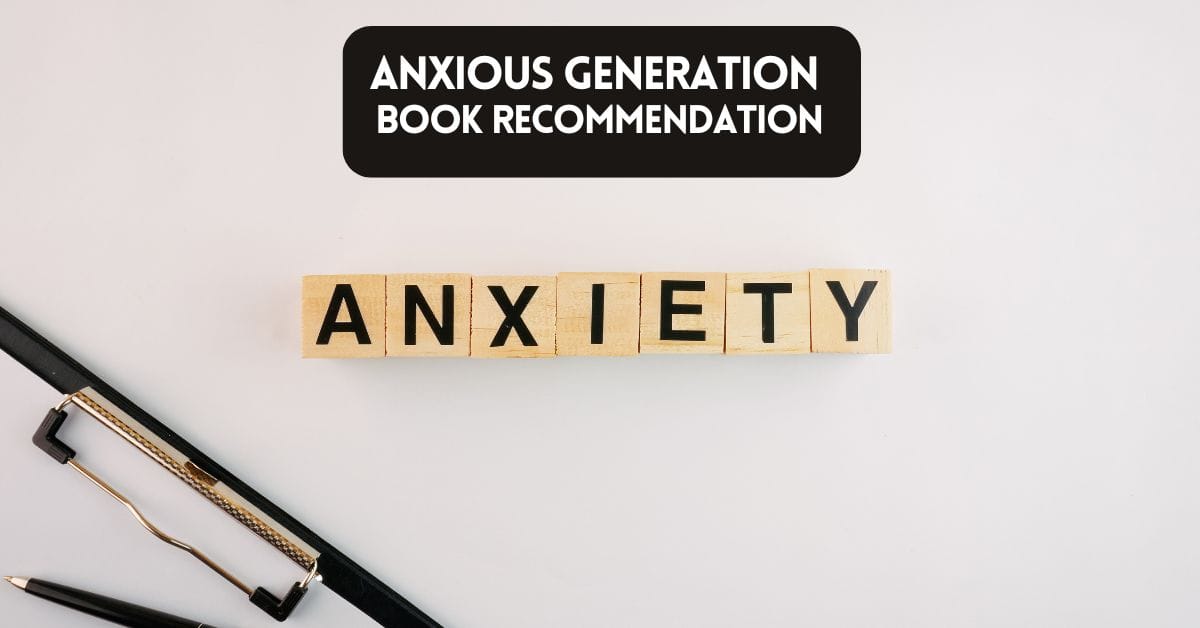The Anxious Generation Book Review – Our Roadtrip Listen
During a recent road trip, we had the chance to listen to “Anxious Generation” by Jonathan Haidt on Audible. This captivating book is timely and compelling, offering a science-based exploration of how technology impacts mental health, especially among young people. Haidt’s insights are invaluable, making this book a must-read for parents, teachers, and anyone concerned with the well-being of the younger generation. Our book review summary of The Anxious Generation: We highly recommend it for its thorough analysis and practical advice.
The Places Where We Go contains affiliate links and is a member of the Amazon Services LLC Associates Program. As an Amazon Associate, we earn from qualifying purchases at no extra cost to you when you purchase using one of these Amazon links. Read our disclaimer and privacy policy for more information.
Overview – The Anxious Generation
In “The Anxious Generation,” Jonathan Haidt explores the alarming rise in teenage mental illness over the past decade. The book highlights the significant increase in diagnoses of depression and anxiety among US college students and the disturbing surge in emergency room visits for self-harm among teenagers. Haidt attributes this mental health crisis to the widespread adoption of smartphones, social media, and addictive online gaming, a phenomenon he calls “the Great Rewiring of Childhood.”
Haidt argues that children today spend less time socializing in person and more time glued to their screens. Girls are more likely to be affected by the self-esteem issues brought on by social media, while boys are more prone to gaming and porn addiction. He believes that while parents have become overprotective in the offline world, they have done too little to shield children from online dangers.
Social Media and Links to Increased Depression
The book also examines studies linking social media usage to increased rates of depression, particularly among girls. One significant study found that girls who spent more than five hours a day on social media were three times more likely to suffer from depression than those who didn’t use it. Studies also indicate that the introduction of Facebook and high-speed internet correlates with rising mental illness rates.
Haidt’s theory suggests that smartphones and social media pull teenagers away from real-life experiences and relationships, leading to a loss of enriching activities and a rise in shallow online communication. This constant social comparison on social media can be cruel and unforgiving, adding to the mental strain on adolescents.
While acknowledging that global events and news cycles may also contribute to teenage anxiety, Haidt primarily focuses on the role of smartphones and social media in exacerbating mental health issues. He also touches on the idea that overprotective parenting may have contributed to the crisis by stunting children’s ability to develop resilience.
Solutions Offered to Improve Mental Health of Young People
The book calls for urgent measures, including banning smartphones in schools, raising the age of internet adulthood to 16, and holding tech companies accountable for the well-being of young users. Haidt’s compelling arguments make “The Anxious Generation” a critical read for anyone concerned about the mental health of today’s youth and the impact of technology on their lives.
Thanks for reading our book review about The Anxious Generation. Click below to get your copy of The Anxious Generation


